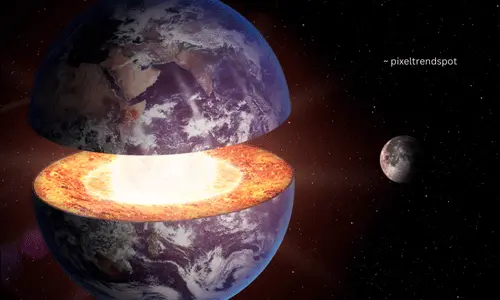Our universe is a dark and terrifying place with dangers lurking around every star system. The most worrying ways that the cosmos could kill us just happen to also be things we wouldn’t be able to control or prevent, and one has probably occurred before. Does that make you concerned?

Supernovae: Explosive Death of Stars A supernova is the explosive death of a star, resulting in an intense burst of radiation. If a supernova were to occur within a certain distance from Earth, the radiation could strip away our planet’s ozone layer, exposing us to harmful ultraviolet radiation from the sun. This exposure could lead to mass extinction by causing severe damage to living organisms and ecosystems.
Gamma-Ray Bursts: Cosmic Cataclysms Gamma-ray bursts (GRBs) are the most energetic explosions in the universe, releasing an immense amount of gamma radiation. A GRB directed at Earth could destroy our ozone layer and irradiate the planet’s surface. The consequences would be catastrophic, including the potential for a global mass extinction event. The intense radiation could also interfere with electronic devices, leading to technological collapse.
Rogue Black Holes: Invisible Destroyers Black holes are regions of space where gravity is so strong that not even light can escape. A rogue black hole passing through our solar system could gravitationally disrupt planetary orbits, potentially sending Earth on a collision course with other celestial bodies or pulling it into the black hole itself. The immense gravitational forces would tear the planet apart, rendering it uninhabitable.
Solar Flares: The Sun’s Fury Solar flares are sudden bursts of radiation and charged particles from the sun. While smaller flares can disrupt satellite communications and power grids, a massive solar flare could have far more severe consequences. A powerful enough flare could strip away Earth’s atmosphere, destroy the ozone layer, and expose the planet to deadly solar radiation. The resulting impact on climate and ecosystems could be devastating.
Asteroid Impacts: Cosmic Collisions Asteroids are rocky bodies that orbit the sun, and some of them cross Earth’s path. A large asteroid impact could release energy equivalent to billions of tons of TNT, causing massive explosions, tsunamis, and wildfires. The impact would also send dust and debris into the atmosphere, blocking sunlight and triggering a “nuclear winter” effect, leading to widespread crop failures and famine.
Cosmic Collisions: Galactic Catastrophes The universe is full of objects moving at incredible speeds, and collisions between galaxies or other massive celestial bodies are not uncommon. If our galaxy were to collide with another, the gravitational forces and energy released could distort planetary orbits and create deadly radiation. While such collisions are rare and occur over long timescales, the potential for destruction is immense.
Vacuum Decay: Quantum Annihilation Vacuum decay is a theoretical event in which a more stable form of vacuum replaces the current state of the universe. This transition would release enormous amounts of energy, propagating at the speed of light and destroying everything in its path. If vacuum decay were to occur, it would annihilate all matter and energy in the universe, including our planet and everything on it.
Conclusion: The Uncontrollable Threats The universe harbors numerous threats that could potentially wipe out humanity. From the explosive deaths of stars to the invisible menace of black holes, these dangers are beyond our control and prevention. While the probability of such events occurring in our lifetime is low, the potential for catastrophic outcomes serves as a reminder of the fragility of life on Earth. Our best defense against these cosmic threats is to continue advancing our scientific understanding of the universe and developing technologies that could mitigate their impacts. For now, we can only marvel at the vastness of space and the mysteries it holds, knowing that the universe remains a place of both wonder and danger.